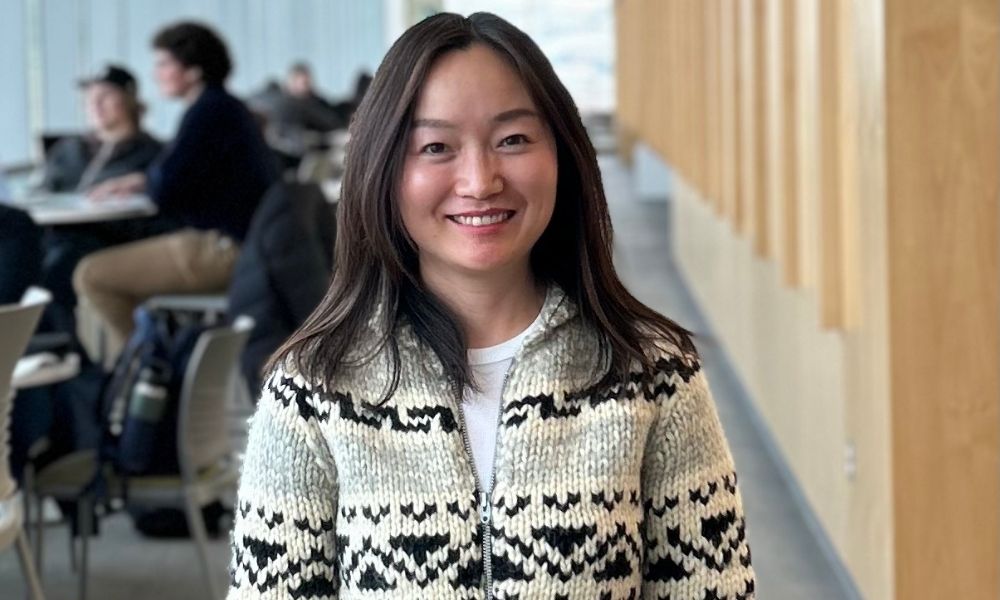
When Huiming Ma, MEd ’24, arrived in Kelowna, BC more than two years ago, she was excited to start a new adventure — in a new country. Ma grew up in a rural area of China and as the middle child in a family of five girls, her family’s financial constraints made her dream of pursuing higher education seem impossible.
“My family didn’t have the means to support my university education, and the odds were against me,” Ma explains. “My teacher nominated me for the scholarship through Canadian Society for Educating Girls of Rural China and with their help I was able to attend university.”
The organization was founded by a Chinese-Canadian woman located in Vancouver. Ma always wondered why an organization in Canada would want to help girls in rural China.
After graduating, Ma worked as a preschool teacher and later in educational technology, where she helped design interactive, science-based storytelling content for children. Her creativity and passion for learning remained strong. As she was volunteering for the charity that first supported her evolved into a new program, its founder invited Ma to consider pursuing her master’s degree in Canada. That invitation brought her to UBC Okanagan.
“My first class with Dr. Christopher Martin was a culture shock,” she recalls. “In my school in China, we were taught to remember and repeat. Here, I had to form and defend my own opinions. I realized I had never truly learned how to think critically.”
That realization inspired her capstone project on critical thinking in the digital age, which earned a place at a national education conference in Montreal — a rare occurrence for a MEd student.
“All the other presenters in my group were PhD students—I was the only master’s student,” she explains. “At first I felt nervous, but after listening to their presentations and talking with them, I thought—oh, I get it. That experience gave me the opportunity to find my courage to express my opinion and speak out.”
With Dr. Martin’s guidance, Ma deepened her research and writing skills. His encouragement, patience, and belief in her potential became a cornerstone of her academic growth.
“He told me, ‘I’m here to support, not to judge’,” she shares. “It was the first I heard something like that.”
Ma’s academic journey also led her to the Centre for Mindful Engagement (CME), where she worked as a research assistant.
“Those meetings gave me a sense of belonging,” she says. “I received thoughtful feedback and learned what it means to be a reflective educator. That job built my confidence.”
Outside the classroom, Ma embraced life in Kelowna. She took up hiking and indoor rock climbing, explored yoga and meditation, and enjoyed walking along Okanagan Lake.
“Living alone here has taught me how to slow down and appreciate stillness,” she says.
Reflecting on her journey, Ma describes studying in Canada as both an academic pursuit and a personal awakening.
“This was the first time I asked myself: Who are you? What do you believe? Where do you want to go?” she says. “I learned how to think, how to listen to different perspectives, and how to be open to the unfamiliar.”
Most importantly, she found her answer to the question that began it all.
“I used to wonder why Canadians would support girls in rural China, and now I understand. The faculty and staff in the Okanagan School of Education showed me acceptance, respect, patience, and inspiration. I learned the value of every individual’s education. I appreciate that they welcomed me with open arms. In the future, I want to transfer the values and knowledge l learned from here to benefit others and make a difference in others’ lives.”
Her advice to future graduate students, especially those coming from different cultures:
“Be open-minded. Let go of assumptions. Embrace what is different. And most of all, believe in yourself, even when it feels impossible. You can do it.”